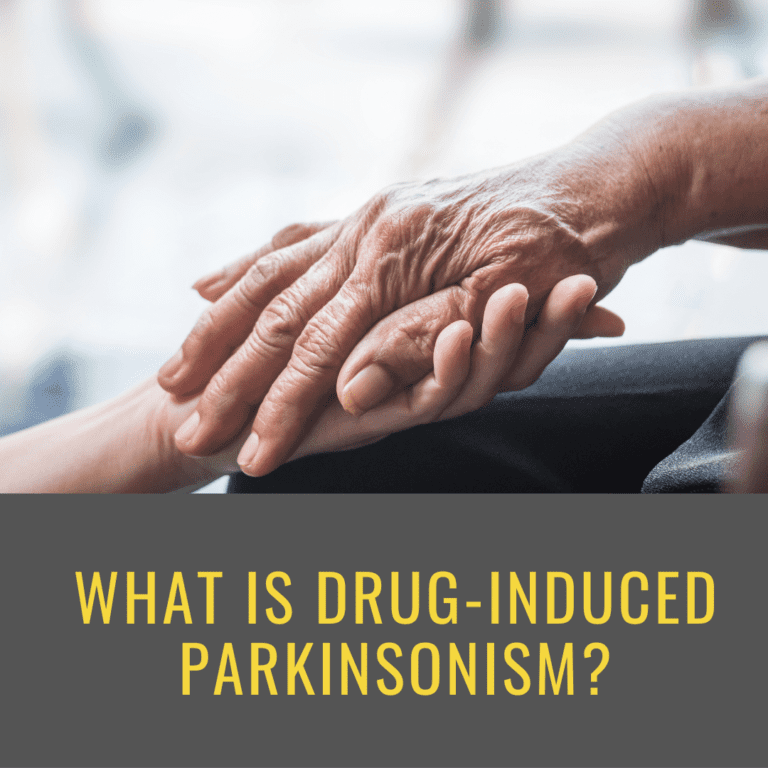Did you know that certain symptoms of Parkinson’s Disease (PD) can be caused by medications? This phenomenon is known as drug-induced parkinsonism (DIP) and it is the second most common cause of parkinsonism in the elderly only after Parkinson’s disease itself. Here is what you need to know about drug-induced Parkinsonism:
DIP can easily be misdiagnosed as PD
Both DIP and PD have identical symptoms, which makes certain cases extremely hard to differentiate and can lead to DIP being misdiagnosed by PD. These symptoms can include some or all of the following: tremor, resting tremor, muscle stiffness, impaired speech, slow gait and movements, and problems with posture and balance. Collectively, these symptoms are known as parkinsonism. In some cases, these symptoms have also been called atypical Parkinson’s disease, secondary parkinsonism, or Parkinson’s plus. Of course parkinsonism can be caused by PD, but it can also occur as a result of DIP. The main difference between parkinsonism associated with DIP and PD is that parkinsonism associated with DIP generally comes on rapidly, while parkinsonism associated with PD tends to develop gradually.
A Number of Medications Can Lead to DIP
Symptoms of Parkinson’s disease occur when there is a loss of dopamine neurons in the brain. Dopamine is a neurotransmitter used by the brain to control bodily movements, learn and focus, and feel pleasure and enjoyment. Certain types of medications, known as dopamine antagonists, bind to and block dopamine receptors. When dopamine receptors in the brain are blocked, this can cause parkinsonism to occur. There are a number of medications that can cause DIP, including:

Anticonvulsants
Anticonvulsant medications are used to epileptic seizures. Out of all the anticonvulsants, valproate is the most likely to cause parkinsonism.
Antidepressants
There are two forms of antidepressants that can cause and/or worsen parkinsonism. These include serotonin reuptake inhibitors (SSRIs) and serotonin-norepinephrine reuptake inhibitors (SNRIs).
Antipsychotics
Antipsychotic medications are used to treat Alzheimer’s disease, anxiety disorders, bipolar disorder, depression, schizophrenia, and Tourette syndrome. Antipsychotic medications associated with parkinsonism can include: chlorpromazine, fluphenazine, haolperidol, perphenazine, pimozide, and promazine.
Anti-Nausea Medications
Like the name suggests, anti-nausea medications are used to treat nausea from motion sickness, vertigo, and general nausea. These medications can include: hydroxyzine and promethazine.
Calcium Channel Blockers
Calcium channel blockers are used to treat high blood pressure, chest pain, and neurological disorders. A calcium channel blocker associated with parkinsonism is diltiazem.
Gastrointestinal Prokinetics
These medications are used to treat digestive disorders caused by improper nerve or muscle function in the gut. Medications in this category that can cause parkinsonism as a side effect include: metoclopramide, prochlorperazine, and levosulpiride.
Exposure to toxins can also cause parkinsonism
While drug-induced parkinsonism is primarily caused by certain medications, there are also cases that have been linked to extensive or long-term exposure to environmental toxins. When the body is regularly exposed to certain toxins, it causes oxidative stress or mitochondrial dysfunction, both of which can result in movement disorders. Toxins associated with causing parkinsonism include: pesticides/herbicides, MTTP, agent orange, certain solvents, manganese and other metals, and organic pollutants.
Not all tremors are associated with parkinsonism
Other than parkinsonism, some medications can also cause drug-induced tremors, which are not associated with parkinsonism. Drug-induced tremors can take the form of postural or action tremors, and they can accompany other PD-like symptoms. Postural tremors occur when the body part is held against gravity, such as when holding something away from the body. An action tremor occurs when the affected body part is moving. Drug-induced tremors also tend to occur on both sides of the body, whereas tremors associated with PD tend to affect one side more than the other. Although similar to DIP, drug-induced tremors differ in that they are not resting tremors. Resting tremors occur only when a limb is at rest and can affect the fingers, hands, feet, or jaw. Resting tremors are also only associated with PD or DIP.
PD causes non-motor symptoms
Despite the fact that DIP and PD can both cause parkinsonism, only PD is associated with also causing non-motor symptoms. This is because PD is a neurodegenerative disorder that affects more than dopamine receptors, whereas DIP only affects dopamine receptors. In addition to causing parkinsonism, PD also causes symptoms such as depression, sleep problems, constipation, and the loss of smell.
Some cases of parkinsonism can be reversed, others cannot
In most cases, drug-induced parkinsonism (DIP) can be reversed once the medication causing the problem is eliminated. However, it can take some time for an individual to return to normal. Depending on the medication and its effects, it can take anywhere from 4-18 months for DIP to resolve itself. In some cases, however, parkinsonism may continue even after the medication has been stopped for more than 18 months. This happens when an individual already has a dopamine deficit that was not caused by the medication. In these cases, that individual was already going to develop PD at some point, however DIP accelerated the process.

Dr. Kashouty, a diplomate of the American Board of Psychiatry and Neurology (ABPN), practices general neurology with fellowship trained specialization in clinical neurophysiology. Dr. Kashouty finds the form and function of the nerves and muscles the most interesting part of neurology, which is what led him to specialize in neurophysiology with more emphasis on neuromuscular conditions. He treats all neurological diseases, but his main focus is to treat and manage headaches, movement disorders and neuromuscular diseases.





